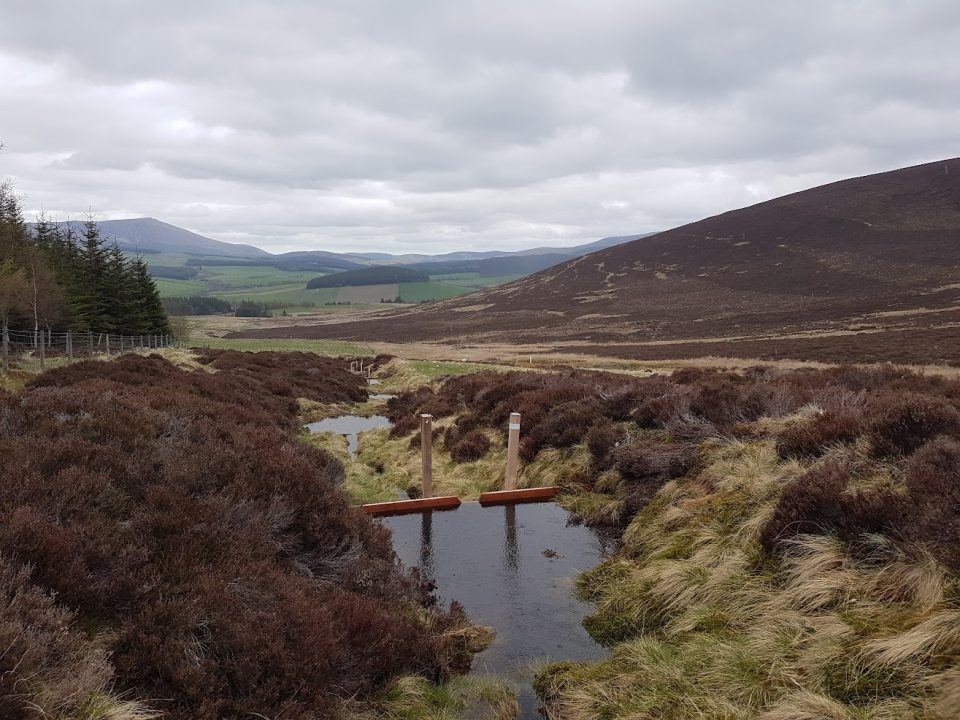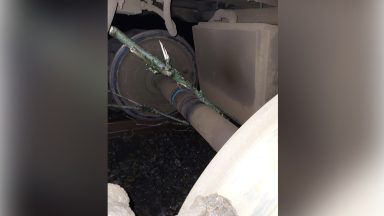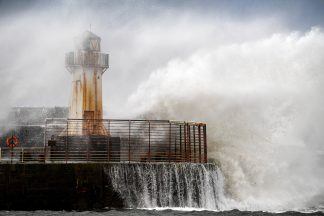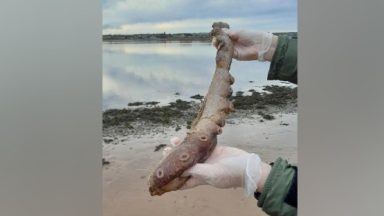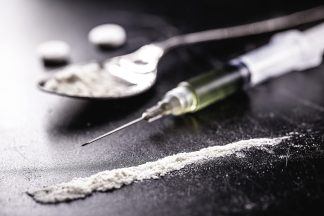It’s known as the water of life for a reason – an essential part of making whisky is water.
But with the recent dry spring, the driest the north east of Scotland has seen for 70 years, a project between the University of Aberdeen and the Glenlivet Distillery in Moray is hoping to help Scotland’s national drink by boosting local water supplies.
Ronald Daalmans is the sustainability director for the Chivas Brothers, who own the site.
He said: “Most of our process water comes from the springs above us on the hills. On average, these produce about a million and a half litres a day.
“But in drier spells, that could reduce to 900,000 litres a day so we’ve been looking at our landscape to see if we can do something so the distillery can keep operating for longer in drier spells.”
They’ve been piloting a project which uses small water dams in the hill above the distillery to store more water.
The dams, which are known as “leaky dams”, help to slow down the water running off the hill during heavy periods of rain, allowing it to absorb into the ground to bolster groundwater supplies.
The groundwater then feeds into the wells and nearby streams which the site uses for making its world renowned whisky and for cooling during production.
Dr Josie Geris, from the University of Aberdeen, said: “As our climate changes we expect these dry periods to be alternated with extreme wet periods, so having strategies that manage both is really important.
“These dams capture the water when it rains and makes it available for later drier periods. This is just a pilot, but it has worked so far.
“We’re also looking at how soil and vegetation management could bring benefits to supplies too.”
Whisky is Scotland’s top export when to comes to food and drink, and demand for it is growing across the world.
Those at Glenlivet Distillery say having more water stored in advance of dry spells helps ease the burden on production.
With more extreme weather expected as the climate changes, projects like this could be integral in helping a billion pound industry and help produce Scotland’s water of life.
Ronald added: “Forecasting when it’s due to be too dry isn’t easy to do, it could come sooner or later than you’d expect, this year we’ve had a very early dry spell for example.
“But the dams will make the catchment area wetter so they can supply the distillery, maybe only for weeks longer than it otherwise would have done, but that’s long enough to help us plan ahead.”
Follow STV News on WhatsApp
Scan the QR code on your mobile device for all the latest news from around the country


